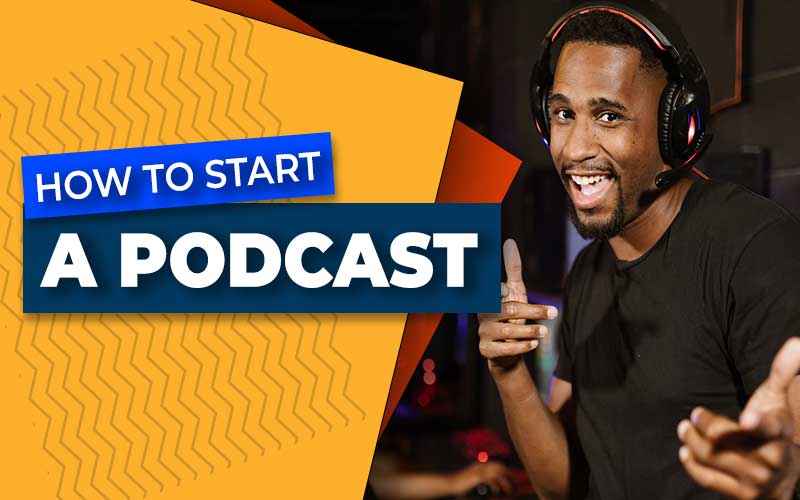Are you tired of struggling to drive traffic to your blog? Unlock the secret to boosting your blog’s visibility with effective keyword research. Keyword research is a critical part of any SEO strategy, but it can be challenging to know where to start.

Discover How to Do Keyword Research that will attract your target audience and improve your blog’s SEO rankings.
In this comprehensive guide, I’ll share my proven strategies and techniques for conducting keyword research like a pro.
From understanding search intent to uncovering long-tail keywords, you’ll learn how to optimize your blog content and outshine the competition.
Get ready to take your blog to the next level and attract organic traffic that converts.
Don’t miss out on this opportunity to master the art of keyword research and propel your blog’s success. Let’s dive in and uncover the untapped potential of your blog’s SEO.
With these simple yet effective steps, you’ll be on your way to optimizing your website and attracting more organic traffic.
Key Takeaways:
- Define your website’s niche and target audience.
- Use keyword research tools to find relevant and popular keywords.
- Focus on long-tail keywords for better targeting.
- Analyze your competition’s keywords and strategies.
- Prioritize intent-based keywords over broad keywords.
- Consider local keywords for location-based businesses.
- Monitor and adjust your keyword strategy over time.
Looking to improve your website’s SEO with keyword research?
Our guide covers the essential steps to follow, including defining your website’s niche, using keyword research tools, analyzing your competition, and monitoring your strategy over time.
You’ll also learn why intent-based and long-tail keywords are crucial for effective targeting, and how to optimize for local searches.
Whether you’re a beginner or looking to refine your existing strategy, our guide has everything you need to know to conduct successful SEO keyword research.
How to Do Keyword Research for Your Blog SEO
STEP 1: DEFINE YOUR WEBSITE’S NICHE AND TARGET AUDIENCE
- Determine the purpose and goals of your website
- Identify your target audience and their search intent
- Brainstorm relevant topics and themes for your content
- Use audience research tools to understand your audience’s interests and preferences
STEP 2: USE KEYWORD RESEARCH TOOLS TO FIND RELEVANT AND POPULAR KEYWORDS
- Conduct initial keyword research using Google Keyword Planner
- Explore related keywords and phrases using tools like SEMrush and Ahrefs
- Analyze search volume, competition, and difficulty metrics for keywords
- Prioritize keywords that align with your website’s niche and target audience
STEP 3: FOCUS ON LONG-TAIL KEYWORDS FOR BETTER TARGETING
- Understand the difference between short-tail and long-tail keywords
- Use long-tail keywords to target specific search queries and intent
- Include modifiers and phrases in your long-tail keywords for better relevance
- Use long-tail keywords in your content, meta tags, and other on-page elements
STEP 4: ANALYZE YOUR COMPETITION’S KEYWORDS AND STRATEGIES
- Identify your top competitors in search engine rankings
- Analyze their website content and keyword usage
- Use tools like SEMrush and Ahrefs to view their backlinks and traffic sources
- Learn from your competitors’ strategies and identify opportunities for improvement
STEP 5: PRIORITIZE INTENT-BASED KEYWORDS OVER BROAD KEYWORDS
- Understand the importance of search intent in keyword research
- Use keyword modifiers to identify search intent and target specific queries
- Analyze keyword difficulty and competition for intent-based keywords
- Focus on creating content that satisfies search intent and provides value to users
STEP 6: CONSIDER LOCAL KEYWORDS FOR LOCATION-BASED BUSINESSES
- Understand the importance of local SEO for businesses with physical locations
- Use location-based keywords in your content and on-page elements
- Create local listings and citations to improve visibility in local search results
- Use tools like Google My Business to manage your local online presence
STEP 7: MONITOR AND ADJUST YOUR KEYWORD STRATEGY OVER TIME
- Use analytics tools to track your website traffic and keyword rankings
- Monitor your competitors and industry trends for new keyword opportunities
- Adjust your keyword strategy based on performance metrics and user feedback
- Continuously update and optimize your content for better search engine visibility.
PROS
- Improved targeting and relevance of blog content through keyword research.
- Higher chances of ranking well for specific search queries.
- Opportunity to attract organic traffic and reach your target audience.
- Enhanced understanding of audience needs and preferences.
- Potential for optimizing blog content and improving SEO performance.
CONS
- Keyword research requires time and effort for thorough analysis.
- Frequent changes in search trends and keyword popularity.
- Competition with other websites for targeting popular keywords.
- Difficulty in striking a balance between SEO optimization and natural writing.
- Over-reliance on keywords may compromise the quality of content.
FAQs:
What is SEO keyword research?
SEO keyword research is the process of finding and analyzing keywords and phrases that people use to search for information online. It involves identifying relevant and popular keywords to target in your website content and other on-page elements to improve your search engine rankings.
Why is SEO keyword research important?
Keyword research is essential for effective SEO because it helps you understand your target audience and their search intent. By identifying relevant keywords and incorporating them into your content, you can improve your visibility in search engine results and attract more organic traffic to your website.
What are long-tail keywords, and why are they important?
Long-tail keywords are longer, more specific phrases that people use to search for information online. They are essential for effective targeting because they help you focus on specific queries and intent. Additionally, long-tail keywords typically have lower competition and higher conversion rates than short-tail keywords.
How do I analyze my competitors’ keyword strategies?
To analyze your competitors’ keyword strategies, you can use tools like SEMrush or Ahrefs to view their website content, backlinks, and traffic sources. You can also manually review their content and identify the keywords they are targeting.
What are intent-based keywords, and how do I use them?
Intent-based keywords are keywords that reflect the searcher’s intent. They are essential for effective targeting because they help you create content that satisfies the searcher’s query and provides value to users. To use intent-based keywords, you can use modifiers like “best,” “how to,” or “reviews” to identify the searcher’s intent and target specific queries.
How often should I adjust my keyword strategy?
Your keyword strategy should be a dynamic process that is continuously updated and optimized based on performance metrics and user feedback. Depending on your website’s goals and industry trends, you may need to adjust your keyword strategy on a weekly, monthly, or quarterly basis.
Wrapping Up:
By following these essential steps for SEO keyword research, you can create a targeted and effective keyword strategy that will help you improve your search engine rankings and attract more organic traffic to your website.
Remember to focus on your website’s niche and target audience, use keyword research tools to find relevant and popular keywords, prioritize long-tail and intent-based keywords, and monitor and adjust your strategy over time.
With dedication and persistence, you can achieve your SEO goals and take your website to the next level.
- Key Takeaways:
- How to Do Keyword Research for Your Blog SEO
- STEP 1: DEFINE YOUR WEBSITE'S NICHE AND TARGET AUDIENCE
- STEP 2: USE KEYWORD RESEARCH TOOLS TO FIND RELEVANT AND POPULAR KEYWORDS
- STEP 3: FOCUS ON LONG-TAIL KEYWORDS FOR BETTER TARGETING
- STEP 4: ANALYZE YOUR COMPETITION'S KEYWORDS AND STRATEGIES
- STEP 5: PRIORITIZE INTENT-BASED KEYWORDS OVER BROAD KEYWORDS
- STEP 6: CONSIDER LOCAL KEYWORDS FOR LOCATION-BASED BUSINESSES
- STEP 7: MONITOR AND ADJUST YOUR KEYWORD STRATEGY OVER TIME
- FAQs:
- Wrapping Up:




